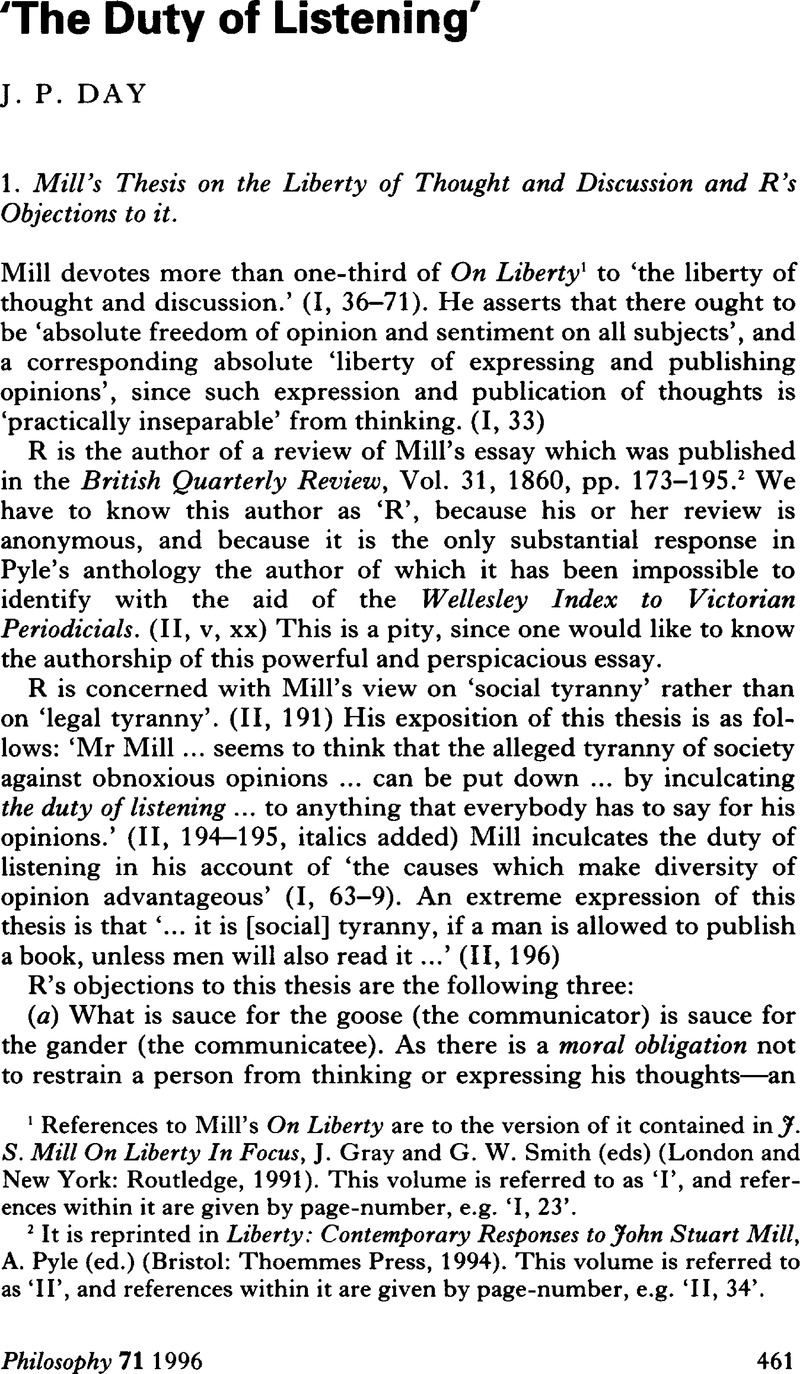Article contents
‘The Duty of Listening’
Published online by Cambridge University Press: 30 January 2009
Abstract

- Type
- Discussion
- Information
- Copyright
- Copyright © The Royal Institute of Philosophy 1996
References
1 References to Mill's, On Liberty are to the version of it contained in J.S. Mill On Liberty In Focus, Gray, J. and Smith, G. W. (eds) (London and New York: Routledge, 1991). This volume is referred to as ‘I’, and references within it are given by page-number, e.g. ‘I, 23’.Google Scholar
2 It is reprinted in Liberty: Contemporary Responses to John Stuart Mill, Pyle, A. (ed.) (Bristol: Thoemmes Press, 1994). This volume is referred to as ‘IP, and references within it are given by page-number, e.g. ‘II, 34’.Google Scholar
3 I am grateful to my colleagues John Rogers and Gregory Roscow, as well as to R, for forcibly impressing this truth upon me.
4 Mossner, E. C., The Life of David Hume (Edinburgh: Nelson, 1954), 116.Google Scholar
5 See Lemmon, J., ‘Moral Dilemmas’, The Philosophical Review 71, 1962.CrossRefGoogle Scholar
6 Cp.: ‘I have expos'd myself to the enmity of all metaphysicians, logicians, mathematicians, and even theologians; and can I wonder at the insults I must suffer? I have declar'd my dis-approbation of their systems; and can I be surpriz'd, if they shou'd express a hatred of mine and of my person?’ (Treatise, Bk. I, Pt. IV, Sec. VII). For all that, Hume appreciated his freedom to write and publish the Treatise. The title-pages of Bks I and II carry as a motto the following sentence of Tacitus: ‘Rara temporum felicitas, ubi sentire, quae velis; ac quae sentias, discere licet.’
7 Of six eminent British philosophers, one-half (namely, Locke, Berkeley and Mill) were theists, and one-half (namely, Hobbes, Hume and Bentham) were atheists. So theism and atheism are plainly irrelevant to philosophical eminence.
8 I am grateful to the Editor for suggesting improvements to this Discussion.
- 2
- Cited by




